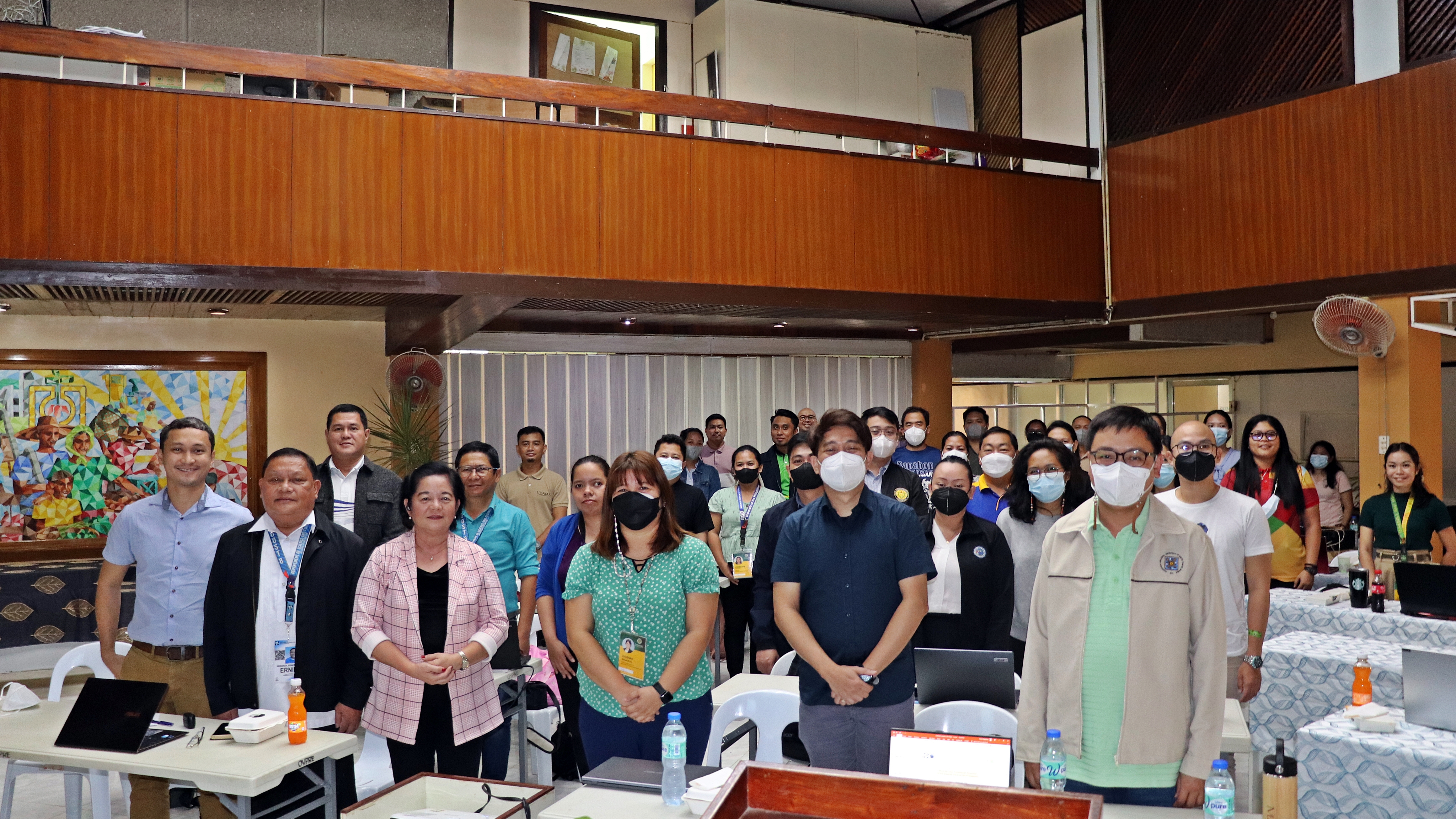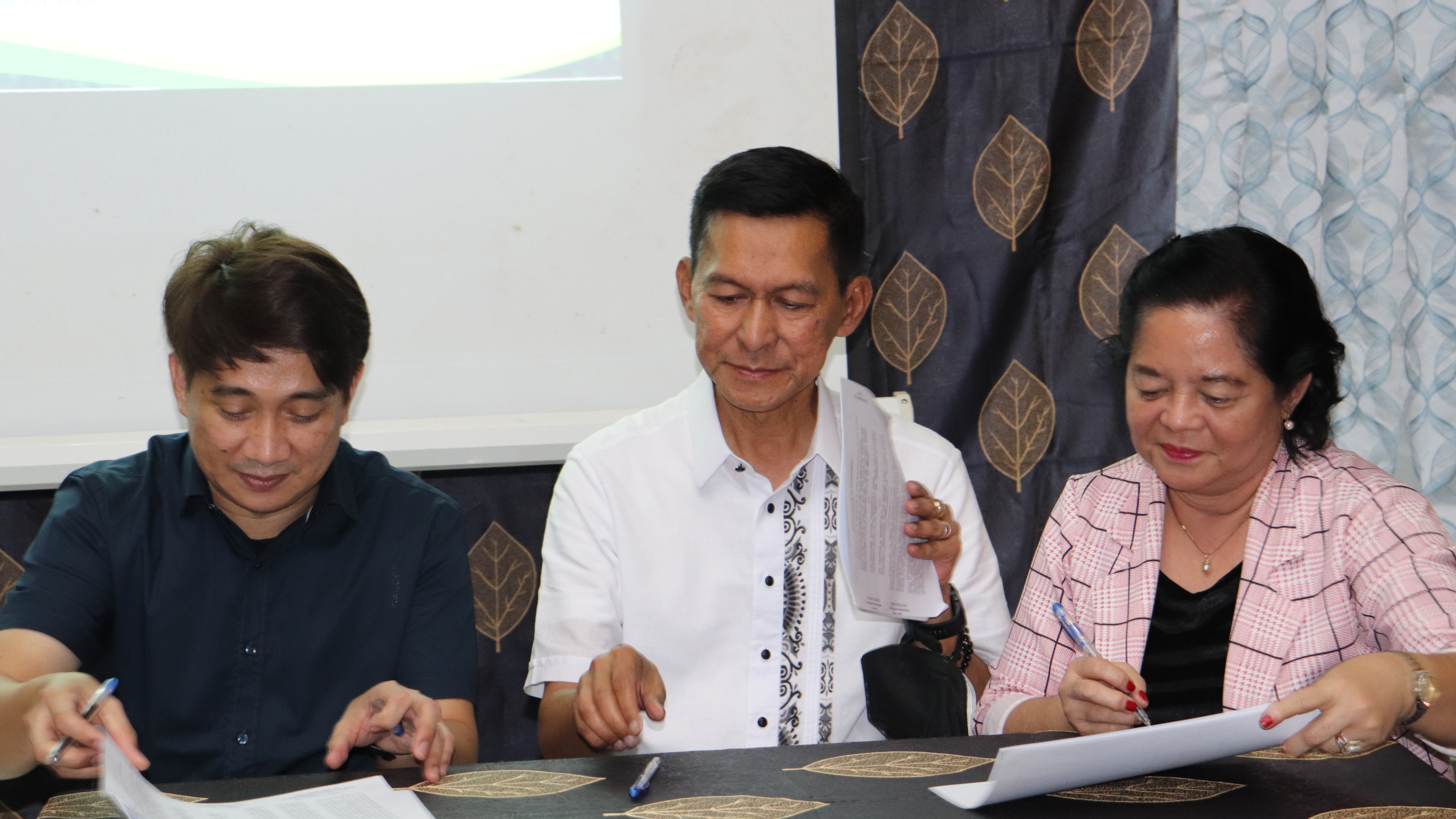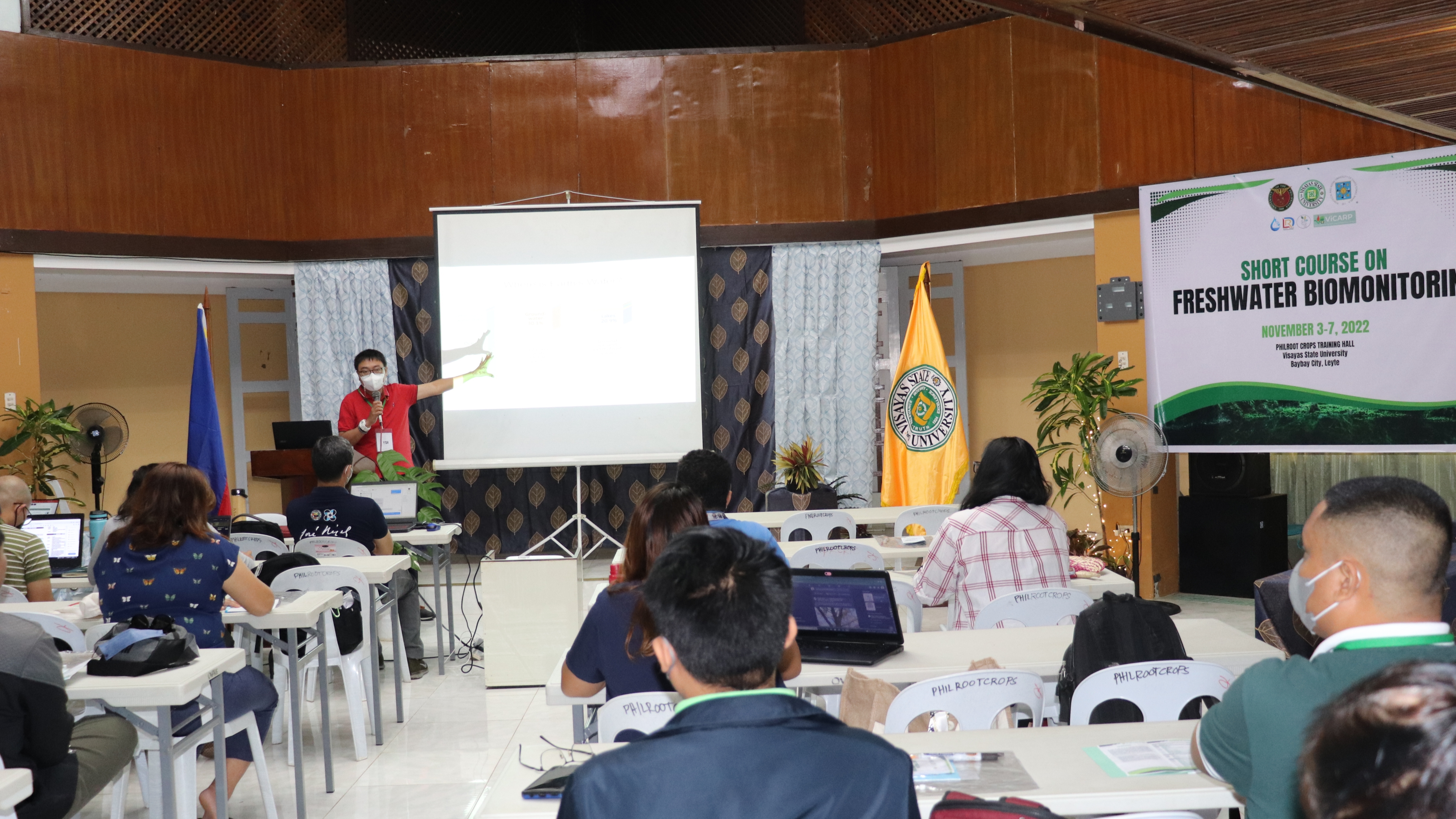VSU collabs with DOST and NRCP for freshwater studies in Eastern Visayas
- Details
- Written by Jack Olaer
-
Published: 15 November 2022

The launching of the first-ever research collaboration of VSU freshwater studies with the Department of Science and Technology (DOST), National Research Council of the Philippines (NRCP), and State Universities and Colleges within Region 8 marks a significant turning point for the university's freshwater research. By the same token, this collaboration is of paramount importance in filling the gaps of knowledge regarding the status and quality of the freshwater ecosystem in the Eastern Visayas and ensuring sufficient funding and resources.
A short course on Freshwater Biomonitoring and the development of a roadmap are among the activities done in the six-day program held in the VSU Philrootcrops training hall on November 2-7, 2022.
DOST Region 8 Regional Director Dr. Ernesto M. Granda and Executive Director of the NCRP Dr. Marita Bañez Sumagaysay were among the notable attendees of the program on Day 1 as they delivered their speeches for the event.
Moreover, they also have the Research and Development Leadership Program (RDLead) leaders and their team, Dr. Francis Magbanua and Dr. Rey Donne Papa who spearheaded the whole event.
RD-Lead program is a program under the DOST that consists of an RD Leader which is an individual who is an expert on the particular program that will train the institutions and that includes the VSU, as it is the first institution to seek assistance. The mentioned program has 4 outputs: (1) Workshop, (2) Publication, (3) Project Proposal, and (4) Building Proposal—which is the freshwater aquatic research laboratory here in VSU.
Other specific participants are the VSU faculty of the Department of Biological Sciences (DBS), satellite campuses VSU Alang-alang and VSU Tolosa, the Institute of Tropical Ecology & Environmental Management (ITEEM), and the Department of Soil Science.
Aside from VSU, schools that are both specifically identified by the DOST to join future programs and projects for freshwater studies are the University of the Philippines Tacloban College (UP-Tacloban), Leyte Normal University (LNU), and Palompon Institute of Technology (PIT).
Scoping and scanning of lake studies in Eastern Visayas
November 2 covers the activity on the scoping and scanning of lake studies in Eastern Visayas in preparation for the development of the road map. The goal was to unify and consolidate programs for Leyte among the identified representatives’ researchers of the 5 schools by the DOST in the Eastern Visayas who are doing freshwater studies.
The VSU together with the local team and its collaborators are in hopes of being able to make a successful proposal to the NRCP.

VSU President Dr. Edgardo E. Tulin made a short appearance for the ceremonial signing of the Memorandum of Agreement (MOA) which is an inset for the road mapping project between NRCP Region 8 Executive Director Dr. Sumagaysay together with RD-Leader Dr. Magbanua.
The concept of freshwater roadmapping is to strategically design the whole process of determining specific freshwater (lakes) studies in the Leyte province to make consolidated actions and steps in moving freshwater research and development (R&D) in Eastern Visayas.
In an interview, Dr. Sumagaysay highlighted the importance of this collaboration in strengthening research specifically for freshwater studies.
“Dr. Magbanua and Dr. Papa who spearheaded this activity thought of putting and inviting all these universities who are doing freshwater studies and check what each one is doing, where each one is strong, where are the gap for research and therefore, later in the workshop, they’ll talk among themselves which are they need to focus on so that at the end of the day we want to use science for decision making, we want to use science for policy making in other words whatever the results of the research we want to bring the data to DENR, BIFAR, LGUs, and other agencies,” Dr. Sumagaysay said.
She also emphasized being keen on the priority areas for funding given that research budgets are limited.
“If we are going to fund projects in the future then we have to minimize duplication, one thing, if we can do for today in this activity, if we can identify research gaps then we will prioritize them. So that we can maximally use our resources," the NRCP R8 Executive Director added.
Day 1 accounted for 40 participants that included the resource speakers and drivers.

Freshwater Biomonitoring Workshop
Concurrently, November 3-7 is the workshop proper. The workshop includes lectures and field activities. Two days were allotted for field activity at Lake Danao and in Brgy. Makinhas river. The lakes and rivers studied represent a range of levels of damage or disturbance.
The use of zooplankton and macroinvertebrate communities as a bioindicator to evaluate and monitor the ecological integrity or health of freshwater ecosystems are significant subjects covered. The participants learned how to do proper sampling, recognize zooplankton and benthic macroinvertebrates, and evaluate the state of the target lakes and rivers using metrics and indices.
The workshop centers on developing a multi-metric health index and the impacts of various pollution and environmental stressors on planktonic and benthic communities and discusses fundamental ecological concepts and principles related to freshwater ecosystems.
Dr. Papa talked about his experiences during the lectures and was feeling a bit nostalgic.
“I am very happy to see the level of enthusiasm and interest not just among the professionals or the faculty members but also the students. Because looking back, this is how it all began for us,“ he said.
In addition, Dr. Papa sees this event as an opportunity to discuss future research plans and the fact that there is insufficient knowledge concerning the condition of lakes here in the region.
The good news is that the RD-Leaders are very much open to helping out in ensuring the success of the project. Nonetheless, the heartbeat of this project is to conserve, protect, and sustainably manage our freshwater ecosystem.
This activity is a crucial step in knowing the status of freshwater here in Region 8.
More importantly, the workshop aims to train future experts who are expected to do freshwater research in their respective universities.

